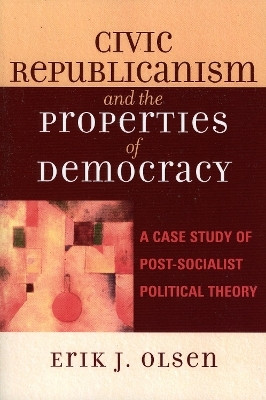Civic Republicanism and the Properties of Democracy(English, Hardcover, Olsen Erik J.)
Quick Overview
Product Price Comparison
Taking the revival of civic republicanism as his point of departure, Erik Olsen examines the relationship between property, civic virtue, and democracy in post-socialist political thought. Olsen's "post-socialism" refers to virtue-centered forms of political theory that continue the socialist tradition of being critical of liberal capitalism while remaining critical of the materialist vision of progressive liberation that informs most modern expressions of left-socialist thought. With civic republicans, these concerns are expressed in the framework of a traditional problem of how to sustain the public liberty of self-governing citizens in the face of the corruptive power of commerce. Olsen argues that civic republicans have failed to develop a viable, virtue-centered alternative to the property arrangements of contemporary commercial republics. Olsen also shows that the outlines for such an alternative can be found in the civic republicans' hermeneutic perspective on the "situated self." By recasting the "situated self" as a concept pertaining to the relationship of the self to property arrangements, Olsen uncovers a "locational" dimension of property, a dimension of "placeness," alongside the more familiar dimension of rightful possession and ownership of things. The vision of democracy that emerges from Civic Republicanism and the Properties of Democracy is informed by liberal commitments to pluralism, equal rights, and oppositionist modes of civic agency. With this book, Olsen seeks to account for the paradox that civic virtue simultaneously supports and threatens democracy. However, he maintains that civic republicans give us reasons to be cautiously hopeful, not just by reminding us that self-government has a nobility of purpose, but also by providing conceptual tools with which to open up new spaces of property and citizenship, thereby providing a measure of pluralism with which to counter an rampant commercialism. A salient intervention into political theory, political science, and social and


